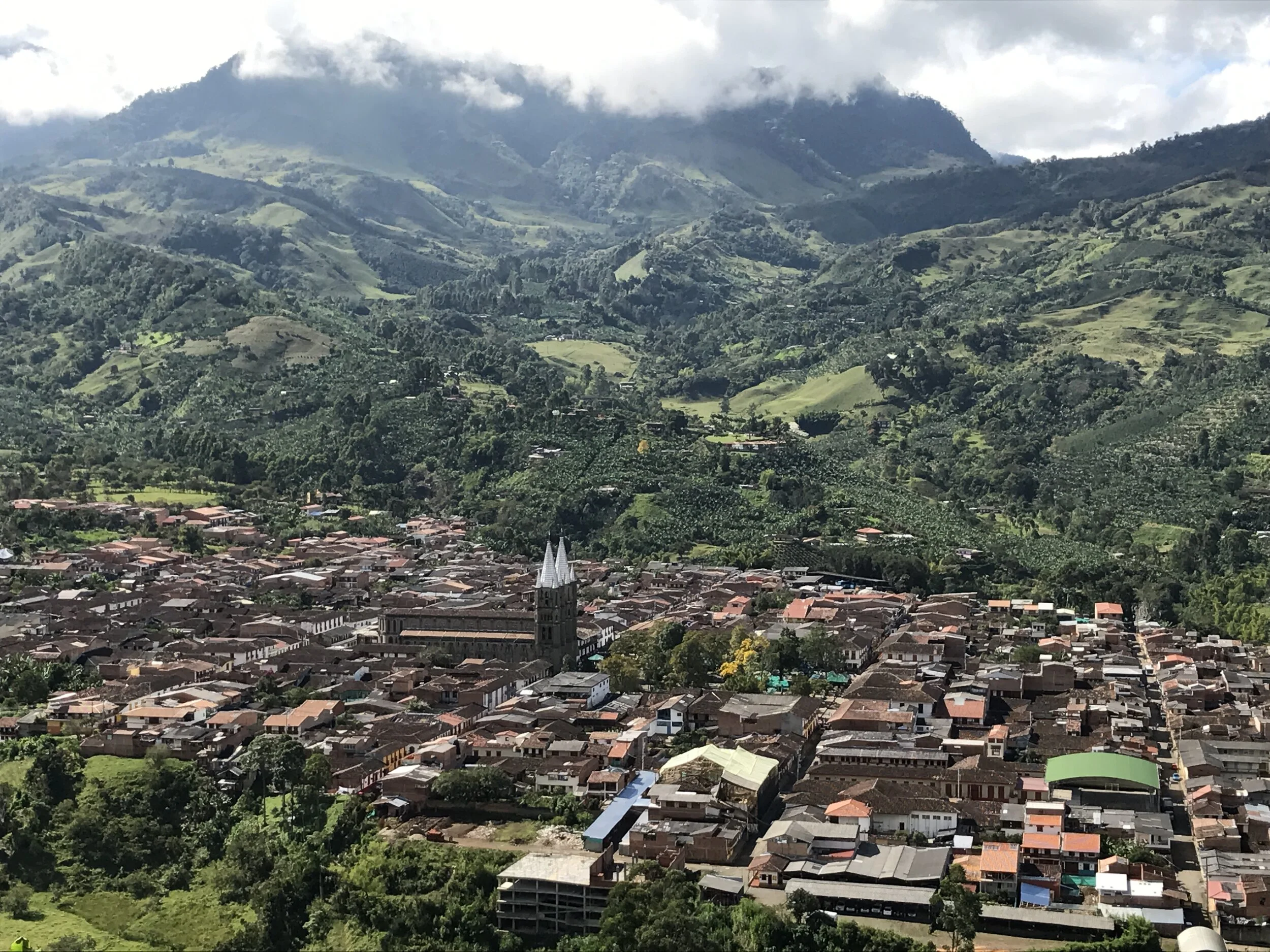Despite the limitations the Colombian government has placed on travel and work generally, the agricultural sector, food and beverage segment, and business involving foreign trade are all allowed to operate, but with safety measures in place.
The FNC has worked with the government to develop new protocols. These will minimize exposure and risk among groups, both on farm and in communities, address worker accommodations to meet distancing recommendations, and encourage extra efforts towards basic sanitary practices.
For the coffee trade in the countryside, new safety efforts also include: Encouraging people in rural areas to reduce travel and not gather in towns, limiting number of people allowed at coffee purchasing points, and scheduling appointments for coffee delivery to minimize forming impromptu large groups. We hear that these protocols are indeed taking place and that workers even in quite remote areas are taking care to limit possible exposure and spread of infection.
Our trilladora in Jardin continues to operate and we are fulfilling our contracts. On March 4th we closed our door to non-employees and put new rules in place. Sanitary measures are exaggerated, and the office and waiting area are cleaner than ever and disinfected regularly. The information we have posted and encourage at the mill for cleanliness we also ask our employees to practice in their homes and at any times when they must interact with others.
The mill is operating from 7AM to 1PM to comply with Jardín’s efforts to keep people close to home. We practice similar cleaning and disinfecting efforts as in the office. Quality control cupping is done under new protocols; cupping is done only by single individuals, not in groups or teams, and staggered to occur at different points during the day. Mill employees now wear more protective equipment than before while performing their tasks and are encouraged to maintain a 2 meter distance from each other. We make strict appointments with producers to schedule parchment deliveries to limit the number of members allowed to attend at any time.
Kike reports that producers understand and are abiding by the new requirements and are quite happy that the mill is still running and they can keep selling us their coffee!
Sol Beatriz tells us that Jardín looks like another place. It is completely closed to everyone from outside the municipality, and businesses are mostly shuttered. This is impactful to a place that relies on tourism as much of its income. Residents are asked to go out only one day per week for shopping, banking, and other essential activities. “What moves our economy to some extent is coffee, so we try to stay open, and let the campesinos know that they can count on us” she says. “To date there are no positive cases in Jardín, but we know that sooner or later it will come, hopefully later. Meanwhile, our families are doing well, trying to handle the confinement and fear in the best possible way, because the impact on people has been incredible. A huge job is ahead for the revival of the economy.”
We are heading into the mid-crop in Antioquia and are told the harvest looks bigger than normal. Hopefully the new rules will not hamper producers’ efforts to get all their coffees harvested and milled. Our trilladora will play a big part in helping the economy of Jardín recover.

